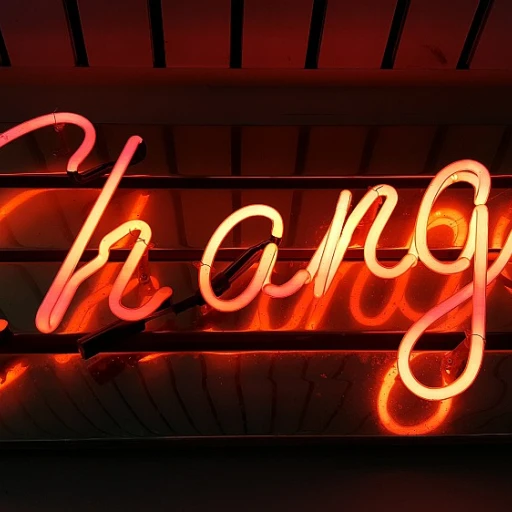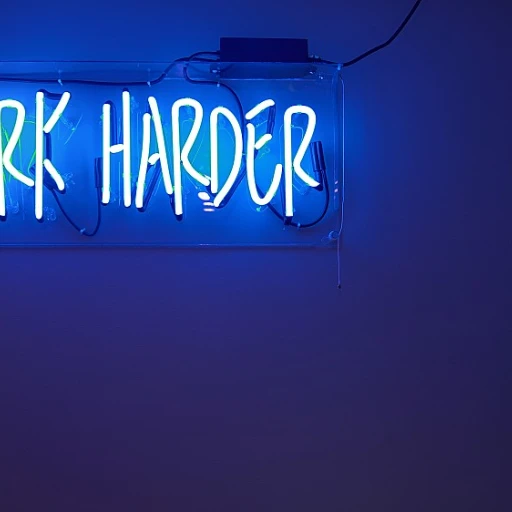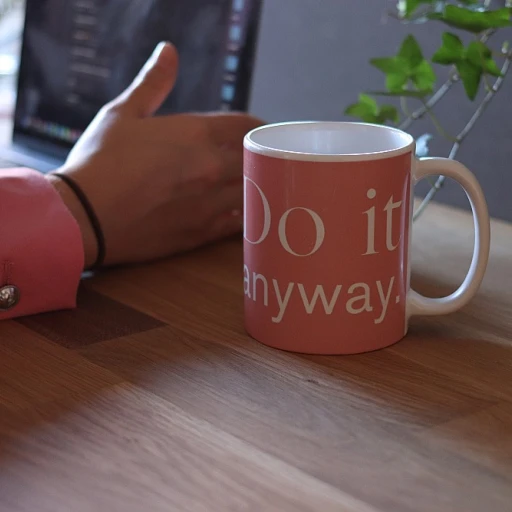
Understanding the Importance of DEI in Interviews
Why DEI Matters in the Interview Process
Emphasizing diversity, equity, and inclusion (DEI) in interviews has become a fundamental approach in shaping the modern work environment. The integration of DEI-focused interview questions not only helps identify candidates who can contribute positively to a diverse team but also reflects a company's commitment to an inclusive workplace. This section delves into the significance of incorporating DEI in the interview process, ensuring that hiring remains not just a procedural task but a strategic initiative aligned with broader organizational goals. An effective DEI strategy in interviews encourages potential candidates to reflect on and articulate their experiences related to diversity and inclusion. Not only does this practice enhance the candidate experience, but it also offers insights into how future team members might engage with the company's diversity initiatives. This approach helps build a workforce that mirrors the diversity of its customer base and enhances the company's capability to innovate. Understanding the centrality of DEI in interviews involves recognizing how equitable hiring processes prevent unconscious bias — a common barrier that can inadvertently exclude underrepresented groups. An inclusive interview process signifies that candidates are being evaluated not only for their qualifications but also for their alignment with the company's DEI values. By embracing these principles during the hiring cycle, companies are better placed to create environments where diverse perspectives are welcomed and valued. For deeper insights into implementing DEI in interviews, and how to effectively manage a diverse hiring panel, explore this comprehensive guide on navigating the dynamics of panel interviews.Key Elements of DEI Interview Questions
Essential Components of DEI Interview Questions
When crafting interview questions that focus on diversity, equity, and inclusion (DEI), it's crucial to ensure they align with your company's DEI goals and initiatives. These questions should not only assess a candidate's understanding and commitment to DEI but also reflect the inclusive culture your organization strives to build. Here are some key elements to consider:
- Relevance to the Role: Tailor your DEI questions to the specific job and responsibilities. For instance, if the role involves teamwork, ask how the candidate has previously contributed to a diverse team environment. This helps gauge their ability to work effectively in an inclusive workplace.
- Focus on Experience: Encourage candidates to describe a time they demonstrated a commitment to DEI in their past roles. This not only provides insight into their experience but also reveals their understanding of diversity and inclusion in a practical context.
- Addressing Unconscious Bias: Include questions that explore how candidates recognize and mitigate unconscious bias in the workplace. This is vital for fostering an equitable hiring process and ensuring all team members feel valued.
- Alignment with Company Values: Ensure your questions reflect the company's DEI values and initiatives. This alignment helps candidates understand the importance of DEI within your organization and its impact on the work environment.
For more insights on crafting effective interview questions that promote teamwork and collaboration, you can explore this resource.
By integrating these elements into your DEI interview questions, you not only enhance the interview process but also contribute to building a more inclusive and diverse workplace.
Common Pitfalls in DEI Interviewing
Avoiding Missteps in DEI Interviews
In the hiring process, creating an inclusive workplace can often be impeded by several common pitfalls when interviewing candidates. Recognizing these missteps is crucial to developing interview questions that accurately assess a candidate's commitment to diversity, equity, and inclusion (DEI). One major pitfall is failing to clearly define what diversity, equity, and inclusion mean to your company. Without this clarity, interview questions may become vague or lack relevance, making it difficult to evaluate how a candidate might contribute to DEI initiatives.- Overreliance on Stereotypes: Sometimes, questions inadvertently draw from stereotypes, which can alienate candidates from underrepresented groups. It's essential to craft questions that invite candidates to share their unique experiences without perpetuating bias.
- Ignoring Cultural Competence: Many interviewers overlook the importance of cultural competence. This can lead to evaluating candidates solely based on their qualifications rather than their ability to thrive in a diverse work environment. Interview questions should probe their experience and sensitivity to cultural differences.
- Lack of Focus on Equity: Questions that only emphasize diversity and inclusion without addressing equity can be a stumbling block. This oversight can hinder your ability to build truly equitable teams. Incorporating questions that dig into how candidates have sought to address systemic inequities in their past roles can provide deeper insights.
Crafting Questions That Reflect Your DEI Goals
Formulating Questions Aligned With DEI Objectives
In the pursuit of a workplace that values diversity, equity, and inclusion (DEI), crafting interview questions that reflect these objectives is crucial. The goal is to design these questions in a way that not only showcases your company's commitment to DEI but also identifies candidates who align with your DEI initiatives. This involves creating inquiries that delve into candidates’ past behaviors and attitudes towards inclusivity, alongside their understanding of diverse work environments. To begin, consider formulating questions that encourage candidates to "describe a time" when they worked effectively in a diverse team. Such questions should prompt candidates to expound on how they contributed equitable solutions or promoted an inclusive work culture. Not only do these questions unveil the candidates' willingness to embrace diversity, but they also highlight experiences that can be indicative of their role in fostering an inclusive workplace. Another approach involves questioning candidates about their awareness and handling of unconscious bias. Here, prospective employees can be asked to present past experiences where they detected or overcame bias in their work environment. This illustrates their capability to actively foster equity inclusion within the workplace and their dedication to continued learning and self-improvement in equity-focused areas. Key to these questions is ensuring they resonate with the specific DEI goals of your company. Whether your focus is on supporting underrepresented groups or enhancing the inclusivity of existing team members, tailoring your questions to these objectives helps streamline your hiring process, identifying candidates that are genuinely aligned with your diversity mission. Among the practical considerations, it's vital that interview questions remain open-ended, allowing candidates to provide comprehensive answers that reflect their authentic perspectives and experiences. Ultimately, DEI interview questions that are well-crafted create a bridge between your company's DEI commitments and candidates' potential contributions, thus facilitating a smoother, more inclusive hiring process.Evaluating Candidate Responses to DEI Questions
Assessing the Candidate's Alignment with DEI Values
When evaluating candidate responses to DEI interview questions, it's crucial to look for alignment with your company's diversity, equity, and inclusion values. This involves assessing not only the content of their answers but also their understanding and commitment to creating a more inclusive workplace. Look for genuine reflections on their experiences and how those experiences translate into their work philosophy. Candidates should be able to describe a time when they have engaged with DEI initiatives or supported team members from underrepresented groups.Analyzing Depth of Understanding
Strong answers should demonstrate a deep understanding of DEI principles and their application in the workplace. When candidates discuss their previous roles or work environments, note how they address topics like unconscious bias, equity inclusion, and promoting diversity inclusion. Ensure their examples illustrate a commitment to fostering inclusive workspaces and their ability to navigate complex DEI-related challenges.Identifying Specific Actions and Impact
Evaluate the specificity of a candidate's responses. Look for concrete examples where a candidate actively contributed to DEI goals. Sample answers should highlight specific actions taken and the subsequent impact on their team or company. Effective candidates often articulate clear outcomes and reflect on the lessons learned, showing their capability to drive positive change within a diverse workplace.Observing Communication and Interpersonal Skills
A candidate's approach to answering DEI questions can also reveal their communication and interpersonal skills. Effective communicators tend to convey their ideas clearly while demonstrating empathy and respect for diverse perspectives. Assess how candidates express their willingness to learn and grow within an inclusive team environment during the interview process. By focusing on these aspects, you can ensure that selected candidates will enhance your team's diversity and work towards an inclusive workplace culture. This aligns with the commitment to DEI and strengthens the overall hiring process by valuing diverse perspectives and equitable treatment for all candidates.Enhancing Candidate Experience Through DEI
Optimizing the Interview Process to Showcase Commitment
Enhancing the candidate experience through DEI involves more than just asking the right questions—it's about transforming the whole interview process. By ensuring that the process is inclusive and reflective of commitment to diversity, equity, and inclusion (DEI) goals, companies can create a more welcoming environment for all candidates. A few key strategies can ensure that DEI is a central part of your hiring process:- Inclusive Interview Panel: Assemble a diverse team of interviewers to reduce unconscious bias. A panel that represents different backgrounds and perspectives can provide a more equitable evaluation of candidates, ensuring each person is assessed fairly based on merit and role suitability.
- Clear Communication: Explicitly communicate the company's DEI priorities throughout the interview. This can be achieved through materials provided to candidates and during the discussion of company culture. Candidates should leave the interview with a clear understanding of the company’s commitment to fostering an inclusive workplace.
- Candidate-Centric Approach: Tailor the interview framework to be more candidate-centric. Instead of merely evaluating candidate skills, focus on understanding how candidates perceive and contribute to equity inclusion in the workplace. This approach shifts the dynamic to be more conversational and collaborative, allowing candidates to fully express their potential contributions to the team.
- Feedback Mechanism: Create a feedback loop that encourages candidates to offer insights into their interview experience. This feedback is invaluable in identifying areas of improvement related to diversity inclusion and ensuring that DEI initiatives are effectively communicated and received.













